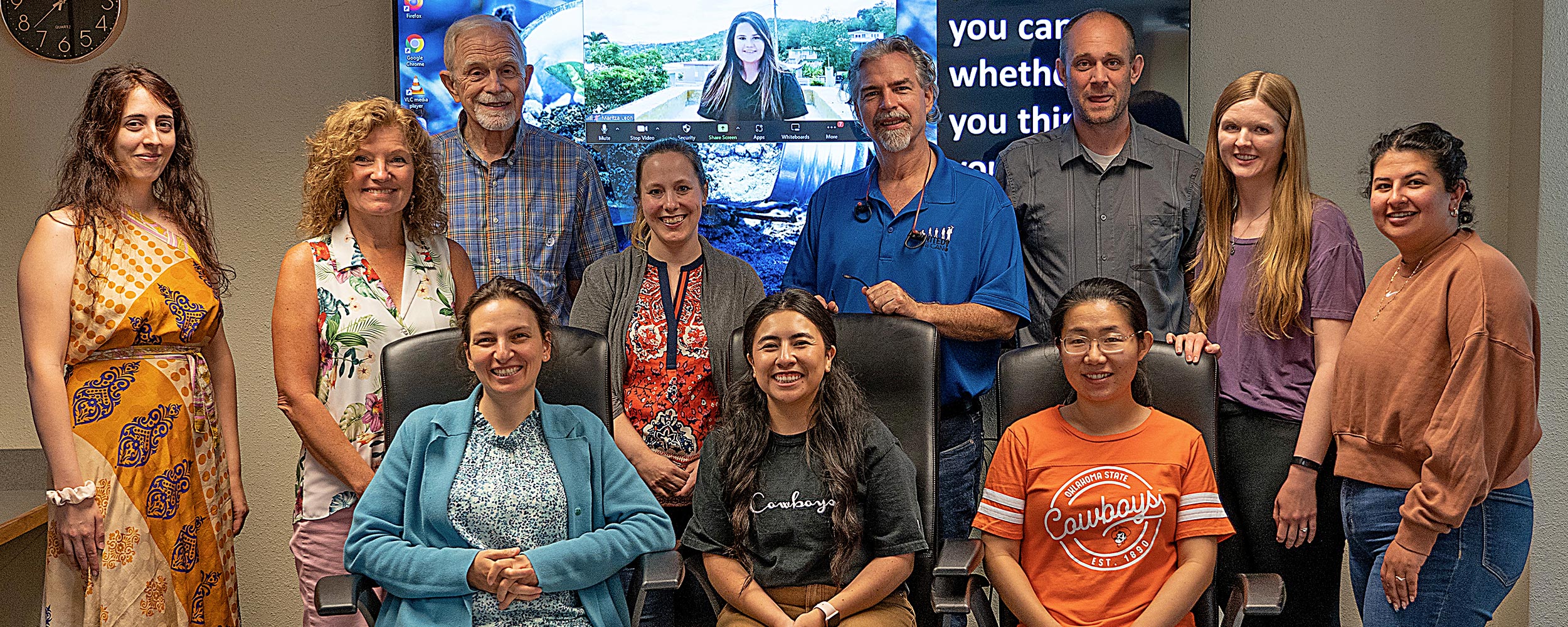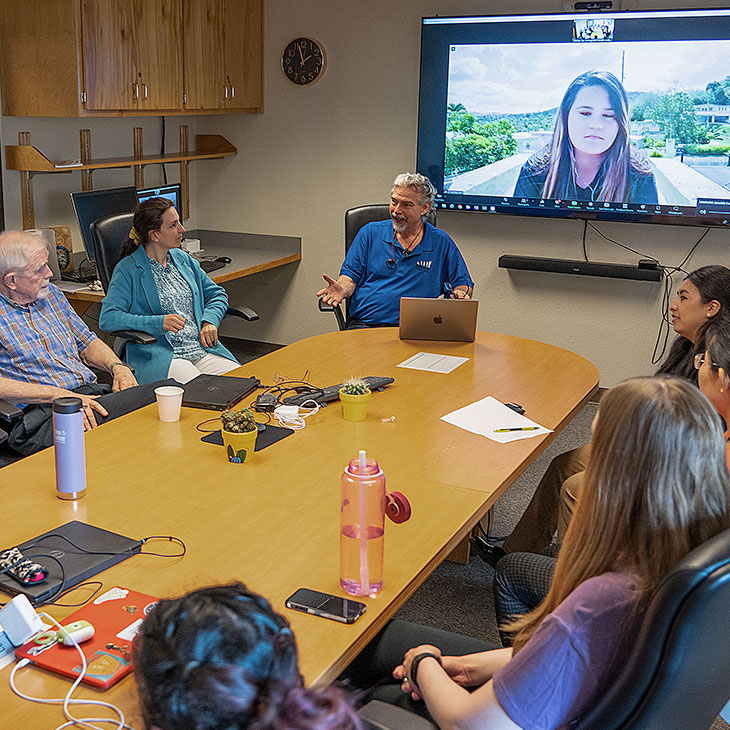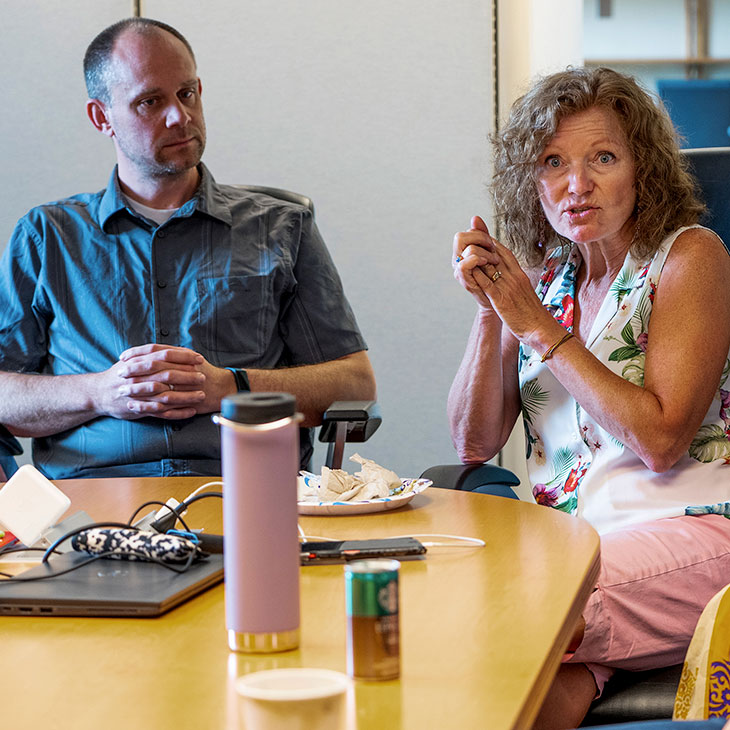
Center for Immigrant Health and Education aims to help immigrants transition to new life
Wednesday, November 30, 2022
Media Contact: Kirsi McDowell | Senior Communications Specialist | 405-744-9347 | kirsi@okstate.edu
While on a mission in Venezuela, Dr. Ron Cox experienced what many immigrants feel
when they come to the United States, including both discrimination and rejection.
This experience was a driving force for Cox, professor in Oklahoma State University’s
College of Education and Human Sciences, to create the Center for Immigrant Health
and Education.
“I had hope for a bright future in my new home [Venezuela], yet I experienced discrimination and rejection from some people, and acceptance and friendship from others,” Cox said.
Upon his return to the United States, Cox found himself feeling the same sensations in reverse and saw a change in the way he saw the place he called home. It was an abrupt realization that he was different, but so was the country he moved back to.
“I had become a stranger in my own land. What felt comfortable before, now felt odd, not bad necessarily, but odd. People didn’t intentionally make me feel like I didn’t belong, but there were little things that seemed slightly out of place,” Cox said.
This alien feeling pushed Cox toward other immigrants who better understood his feelings.
The Center for Immigrant Health and Education was created to assist immigrants from
all countries in adjusting to a life in a new place. 
“The Center for Immigrant Health and Education brings together top scholars in the field to discover factors leading to an enhanced quality of life for immigrant families, to elaborate effective psychosocial interventions and to prepare the next generation of scholars dedicated to immigrant health and education,” Cox said.
The Center for Immigrant Health and Education is attempting to preserve and learn about the culture of the immigrant children who are born between two worlds, Cox said. Researchers are also exploring the extent that Shared Language Erosion affects parent-child relationships as well as child health and educational outcomes.
“Shared Language Erosion is a phenomenon discovered by our researchers when second-generation immigrant children enter school and begin to lose the ability to speak and understand their heritage language,” Cox said. “Simultaneously, their parents' English language skills only increase modestly creating the erosion.”
The center helps families by providing resources they need to become successful in a new country. Maritza Leon Cartagena, a graduate research assistant in the Department of Human Development and Family Science, immigrated to the United States from Puerto Rico when she was 13. Cartagena has provided resources to the immigrant families in Oklahoma for over five years, both at OSU and at Stillwater Public Schools.
“People immigrate to this country because they have a dream to better their lives and we as a community have the resources and ability to help them with this dream,” Cartagena said.
 Cartagena works with immigrants who want to obtain their GED and improve their English
skills. She has helped to set up classes at SPS to help children better their Spanish
speaking skills. Cartagena said adults often come to the country with learned skills
but don’t know how to apply those skills to the United States job market, often taking
jobs they were never trained to do. They need help finding jobs they like and already
have the skillset for.
Cartagena works with immigrants who want to obtain their GED and improve their English
skills. She has helped to set up classes at SPS to help children better their Spanish
speaking skills. Cartagena said adults often come to the country with learned skills
but don’t know how to apply those skills to the United States job market, often taking
jobs they were never trained to do. They need help finding jobs they like and already
have the skillset for.
“Whenever I talk to my students or their parents, I always remind them that they shouldn’t feel at a loss or held back because of a language barrier,” Cartagena said. “It is rewarding to see the light in their eyes when the resources keep getting provided.”
Because of the language barrier, parents find themselves feeling disconnected from their children, feeling as though their children are living in two different worlds and they are only in one of those worlds.
“I hear the words ‘I’m stuck’ almost every time I work with parents,” Cartagena said. “The parents need just as much help as the children.”
There has been little research validating the psychosocial tendencies of immigrants. Cox and Cartagena say immigrant children have an overarching fear of being deported that affects their performance at school.
“The research has found that the children will be more successful in school and have a better outlook on life if hope is high,” Cartagena said. “The greater the level of fear, the greater the chance the children will get involved in substance abuse and will have a worse relationship with their parents.”
The center is working to formulate goals and assist the parents and child on how to cope with this fear and increase their hope to help immigrant families have the most successful adaptation to the U.S. as possible.
Story By: Katie Lacey | ASPIRE Magazine
Photos By: Kelly Kerr
